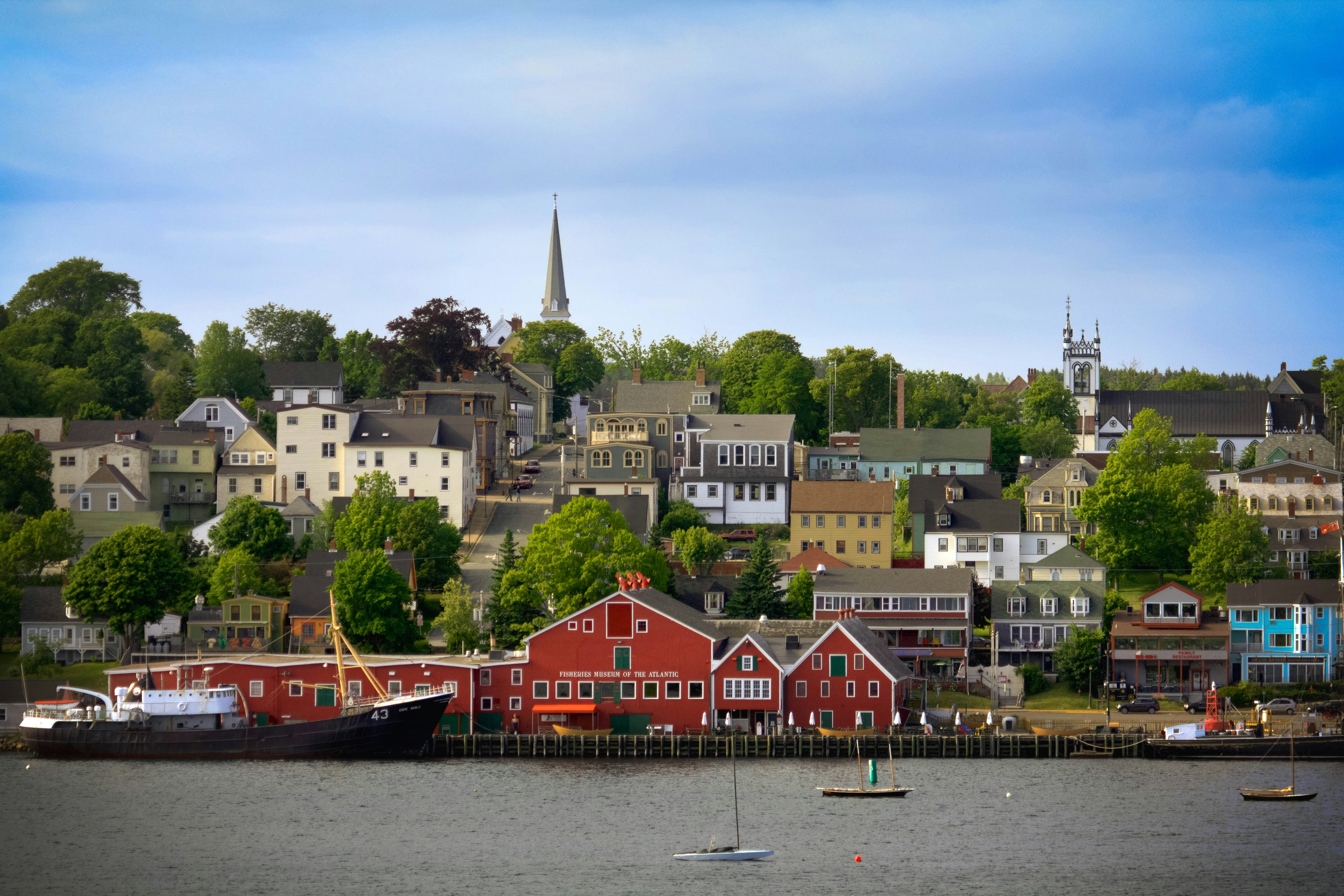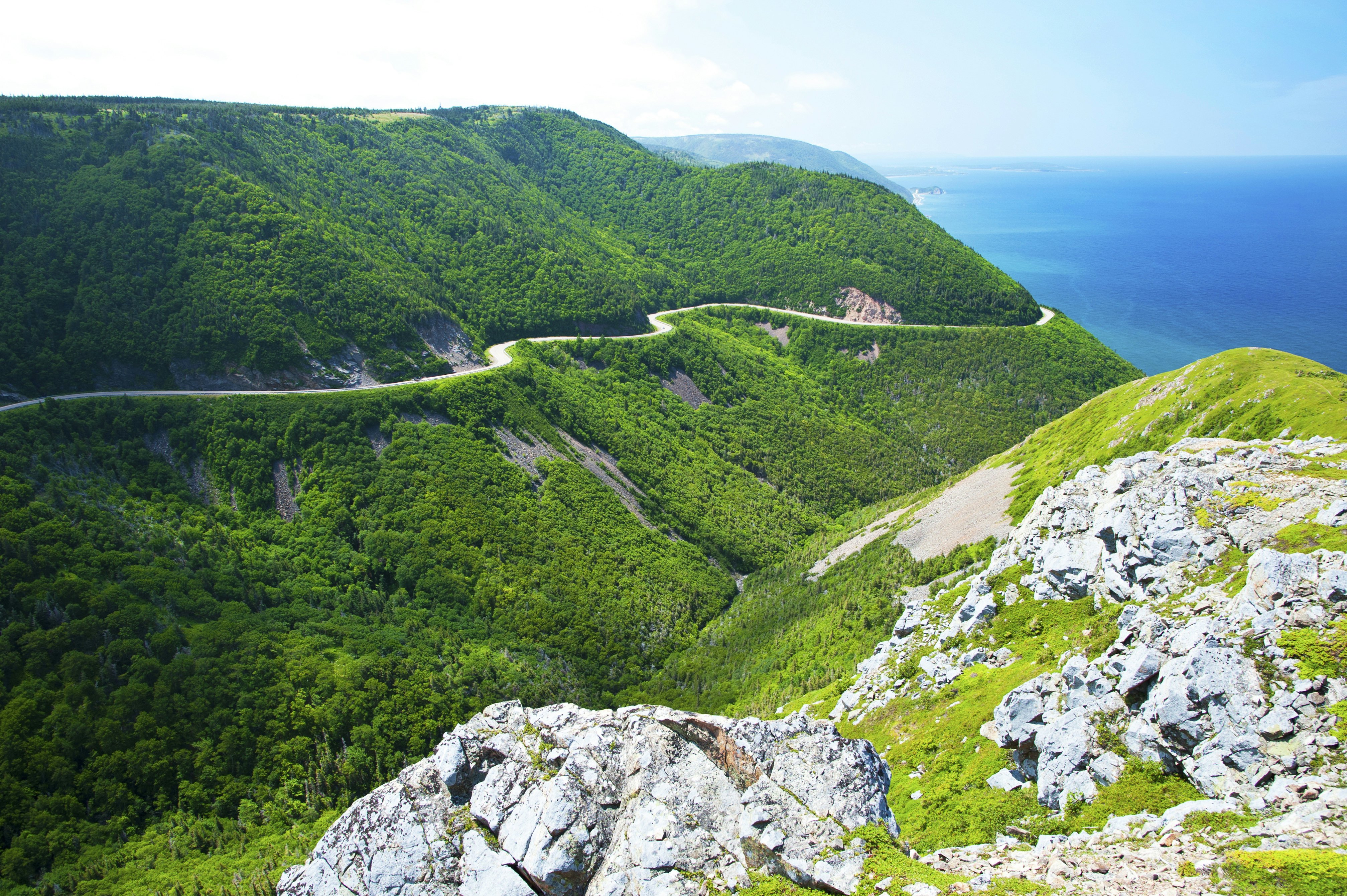
The 30 best countries, cities and regions to visit in 2025

Drive the wild highways and coastlines of Nova Scotia on a road trip © Peter Unger / Getty Images
There’s no better way to enjoy a summer’s day in Nova Scotia than poking along a quiet, rural road with the windows down just to see what’s around the next corner.
As often as not, it’s an equally quiet cove where fishing boats bob at their buoys or a stretch of silver sand or a rocky promontory with a hiking trail. The scenery, along with the many parks and major Mi’kmaw, Gaelic and French cultural sites spaced along the route, will have you lingering longer than planned.
Driver’s licenses from other countries are good in Nova Scotia for up to 90 days. You can drive from one end to the other in eight hours. To get places fast, stick to the 100 series highways. For scenery, sites and experiences, follow Nova Scotia’s scenic drives and smaller roads branching from them. Except for rush hour in Halifax, roads are rarely overly busy. All are well-marked with location, distance and road rules – let them lead you on a carefree, windows-down road trip.
Want to explore Nova Scotia without a set of wheels? Here are our tips for getting around

Best drive between coastal towns
Halifax–Bridgewater; 210km (130 miles), allow 2 days
On this drive from Halifax, turn off Hwy 103 onto Rte 324 to the town of Lunenburg, where the steep streets step down to the Fisheries Museum of the Atlantic and the Bluenose II, Canada’s famous tall ship. Accented by fire-engine-red buildings, this waterfront streetscape is designated a UNESCO World Heritage Site. Lunenburg vies with Peggy’s Cove – its lighthouse propped on bald, bold boulders – for the top South Shore attraction.
Don’t miss the sailing town of Chester and the artisanal hub of Mahone Bay. Take a side trip to Blue Rocks. Tour around the Aspotogan Peninsula and beyond Lunenburg to Riverport before taking the cable ferry across the LaHave River and finishing your drive in Bridgewater.
Detour: For an out-of-the-way experience, take a bicycle aboard the ferry to Big Tancook for a day of cycling on quiet roads.
Best road trip for fishing villages
Yarmouth–Bridgewater; 473km (294 miles), allow 3 days
When the ferry from Maine docks in Yarmouth, hit the road for the Tusket Island archipelago, including Wedgeport, once a tuna fishing hot spot. Generally follow Rte 3 along the coast, pulling off to the Historic Acadian Village in Pubnico, where early 1900s French Acadian life is brought to life. Tour around Cape Sable Island, the lobster fishing capital of the world, before heading on to Birchtown, where the Black Loyalist Heritage Centre tells a missing chapter in the story of slavery. Walk the historic waterfront in Shelburne, stroll Crescent Beach into Lockeport and crank the old foghorn at Fort Point Lighthouse in Liverpool. Continue along coastal roads beside silvery beaches, stopping at artisan shops from Voglers Cove to LaHave before ending in Bridgewater.
First time in Nova Scotia? Here are some top tips from a local

Best road trip for French heritage
Yarmouth–Digby; 110km (68 miles), allow 2 days
In 1755, British forces violently expelled French Acadian settlers from Nova Scotia. Many returned eight years later to settle along the coast between Yarmouth and Digby. They left as farmers but turned to fishing upon their return. Today, the Acadian red, white and blue are painted on everything from mailboxes to lobster boats. Stone and wooden churches stand like historical waypoints along the route. Fishing villages and wide beaches add to the variety. Follow Rte 1 along the coast that links the ferry from Maine in Yarmouth with the ferry from New Brunswick in Digby.
Local tip: Every August 15 on National Acadian Day, Acadians take to the streets for the Tintamarre when they bang pots and pans, honk their car horns and yell their Acadian pride as loudly as possible. It’s a moving spectacle.
Best road trip for wine and farm markets
Digby–Halifax; 228km (142 miles), allow 3 days
Nova Scotia’s best weather region, the verdant Annapolis Valley is also the province’s agricultural heartland. Follow Rte 1 to pick up fresh produce year-round at family farm markets and U-picks. Tour vineyards along the route and sample wines that are making a splash on the world stage. Vintners discovered that mineral-rich soils and ocean-tempered slopes here are perfect for growing crisp whites and clean, sparkling wines like the province’s appellation wine, Tidal Bay, a perfect pairing for Nova Scotia seafood.
Local tip: No designated driver? No problem. Sign up for a tour of local wineries with Grape Escapes or the Magic Winery Bus.
Best road trip for island hopping
Dartmouth–Canso; 305km (253 miles), allow 2 days
The Eastern Shore Drive follows Rte 7 along an undulating coastline around rocky peninsulas and long, narrow bays. Sea kayak with a guide around the 100 Wild Islands Coastal Wilderness. Dress up like a 19th-century pioneer at Sherbrooke Village, Nova Scotia’s largest provincial museum, then learn to make a horseshoe at the blacksmith shop, see a carpenter handcraft a chair and spend time in the village jail.
Local tip: End in Canso on the last weekend of July to attend the legendary Stan Rogers Folk Festival.
Explore more of Canada with these fantastic road trips

Best road trip for prehistoric sites
Amherst–Truro; 232km (144 miles), allow 2 days
As of 2020, much of this coastline along Rte 2 and Rte 209 is now known as the Cliffs of Fundy UNESCO Geopark for its natural and cultural history. Camp at Five Islands Provincial Park and learn the legend of Kluskap, the Mi’kmaw creation god who threw clods of mud at a giant beaver to create the islands. In Parrsboro, learn about the amphibians that splashed around in sweltering swamps in this very spot over 300 million years ago. Walk to the Cape d’Or Lighthouse perched on a cliff that thrusts like an arrowhead into the bay. Hike the wilds of Cape Chignecto Provincial Park. At the Joggins Fossil Centre, tour the coastal cliffs where fossils of pre-dinosaur flora and fauna fall from the cliffs.
Local tip: For local shipbuilding history, stop at the ship-shaped Age of Sail Museum in Port Greville.
Best road trip for warm waters
Amherst–Canso Causeway; 278km (173 miles), allow 3 days
The North Shore drive slips through bucolic countryside, pauses in small towns and leads to long stretches of beach gently washed by the relatively warm waters of the Northumberland Strait. In Pictou, climb aboard a replica of the tall ship Hector. The original carried the first Scottish settlers to the North Shore in 1773. At the Museum of Industry, a retired coal miner spins harrowing tales of tragedy and narrow escapes. Melmerby Provincial Park tops the list of this coast’s best beaches for its warm, shallow waters and services.
Detour: Take the Cape George 255km (158-mile) side trip to and from Antigonish along Rtes 337 and 245 to sample craft spirits at Steinhart Distillery, taste the cheese at Knoydart Farm, chat with the fishers at the Ballantyne’s Cove Tuna Interpretation Centre and gaze out to sea from the cliff top Cape George Lighthouse.

Best road trip for highland scenery
Baddeck–Baddeck; 298km (185 miles), allow 2–3 days
Tops for scenery, the Cabot Trail mostly on Rte 30, follows switchback roads up and down the ancient remains of Appalachian Mountain ridges. While drivers can complete this road trip in a single day, it would be a shame to rush. You'll want to pull over at lookoffs and pause at artisan studios and museums, walk around villages like the whale-watching hub of Pleasant Bay, and take advantage of the national park’s services, hikes and interpretive programs. Stay overnight to savor the solitude, ogle the night sky, sample North America’s first single malt whiskey, or play a round of golf on one of the world’s top 50 courses.
Local tip: An alternative to a loop drive from Baddeck, continue on from Cheticamp down Cape Breton’s west coast toward the Canso Causeway. Experience traditional music jam night at the Red Shoe Pub in Mabou.
Best road trip for cultural experiences
Canso Causeway–Canso Causeway; 470km (292 miles), allow 3 days
It’s a case of the slower, the better when driving around the saltwater Bras d’Or Lake – much of it along Rte 4 – for the scenery and its many cultural sites. Perched on a hilltop, the lake’s calm waters spread before the living history Highland Village Museum, where Gaelic settlers built a farm and church. Follow Indigenous guides on an Eskasoni Cultural Journeys walk along a 2.4km (1.5-mile) trail into the past with stops that teach visitors about Mi’kmaw culture. The route leads to Fortress Louisbourg to explore the fortifications, streets and reconstructed 18th-century homes, hotels and shops.
Save this list of the best things to do
Figure out the best times to visit
These are the places you have to visit
Plan with a local
